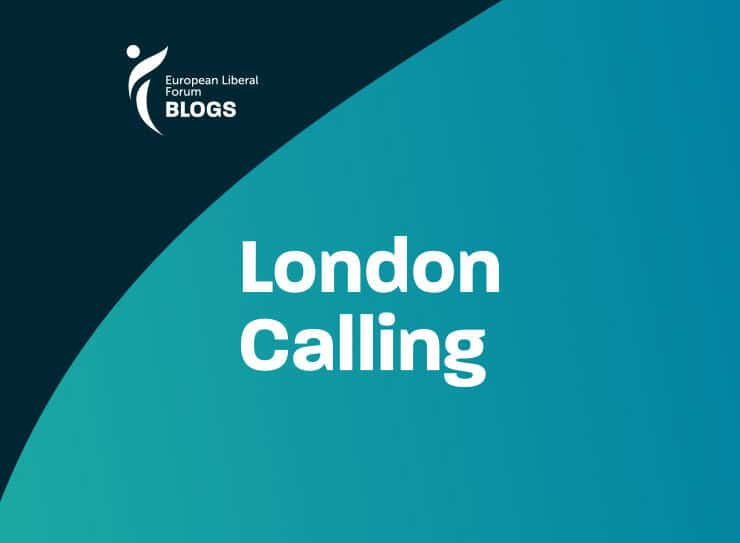12 June 2020
Stranded – the fate of EU citizens in the UK
Blog Post by Irina von Wiese, former Liberal Democrat MEPLondon Calling is the new column of the European Liberal Forum […]

Blog Post by Irina von Wiese, former Liberal Democrat MEPLondon Calling is the new column of the European Liberal Forum […]

Blog Post by Irina von Wiese, former Liberal Democrat MEP
London Calling is the new column of the European Liberal Forum aimed at bridging the Channel
“Damage limitation’ – this is how Michel Barnier described the current state of the Brexit negotiations. But for many of the 3.5 million EU citizens in Britain, the damage is already done. Stuck in the UK while borders are closed, and made redundant by the lockdown, many are stranded without access to any type of government support.
Although the Withdrawal Agreement promises them equal rights until the end of the transition period, the reality for many EU citizens here is very different. Technically, they have to show ‘settled status’ in the UK – an automatic right after five years of continuous employment – in order to access benefits. In practice, about 20% of EU citizens have yet to apply for this status, and with the lockdown, a backlog of applications has accumulated. Most did not know that benefits depend on their settled status, and others did not apply earlier because they had no reason to believe that a global pandemic would suddenly rob them of their employment.
And then there are those who did apply but were only granted ‘pre-settled’ status – 1.2 million of them. By law, this status should only be given as a temporary measure to those who do not fulfil all conditions for settled status, notably the five-year residency condition. Again, the practice diverges from the theory: about 30 percent of applicants were only granted pre-settled status, often because of formalities such as missing authentication of documents. These 1.2 million people now find themselves exposed to a triple threat: stuck in the UK, with the second highest per capita Coronavirus death rate in Europe, often working in the most affected industries such as hospitality, and therefore most likely to have lost their jobs, and without access to any kind of unemployment benefits. More and more EU citizens – mostly from Eastern European countries, but also an increasing number of Spaniards and Italians – now live on the streets, dependent on charity food handouts and at constant risk of infection.
Legally, there is not much affected EU citizens can do. In April – at the height of the Coronavirus outbreak – the UK High Court ruled that unemployment and other social benefits are available only to those with permanent residence, which ‘pre-settled’ status does not convey. This was not always the case: the settlement status programme was quietly changed in 2019 to exclude EU citizens with preliminary status. Under EU law – still applicable here until the end of the year – this is allowed: ‘economically inactive’ EU citizens without permanent residence do not have a right to access social benefits in other Member States. None of these rules however foresaw a crisis that would make millions unemployed while simultaneously locking them in their resident country.
Against this backdrop, and bearing in mind Boris Johnson’s famous promise that ‘no EU citizen in Britain will be worse off because of Brexit’, the treatment of redundant EU workers in the UK is certainly not compatible with the spirit of the Withdrawal Agreement. Article 23 states that both sides are obliged to treat EU and British citizens equally. The protection and non-discrimination of EU citizens in the UK was enshrined in the Agreement and reinforced by a declaration in the European Parliament – one of the last votes I participated in. Now we see the UK government back-paddling, as it does on so many other promises in the Withdrawal Agreement.
This is not just a legal issue. To allow 1.2 million residents to slip through the social net is to bite the hand that has long fed Britain’s most vulnerable citizens.
Migration from (other) EU countries has been vital in supplying the British national health system with nurses, midwifes and doctors. Thousands of them already left the UK between 2017 and 2019, many citing Brexit as the main reason. They left an NHS near collapse even before the pandemic. Luckily, some stayed behind: when Boris Johnson recovered from his severe Coronavirus illness, one of the two ICU nurses he thanked for saving his life was Portuguese (the other one being from New Zealand).
Once we emerge from lockdown, many EU citizens will find themselves with no alternative but to return to their home countries. Pubs, hotels, restaurants and many cultural institutions, hardest hit by the lockdown, heavily rely on EU staff and will not have the resource to train local people quickly. London, home to most of my fellow EU citizens, will not be the same without its international flair and multi-cultural influences. At a time when international cooperation and multilateralism are needed more than ever, this is not just a human loss. It is another step towards British isolationism we must fight, for the sake of the next generation on both sides of the Channel.